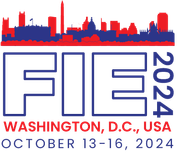Affect and Identity in Engineering Education: Understanding how emotions, feelings, and values shape our students work and contribute to their engineering identity
Sunday | October 13, 2024
This workshop will equip participants to begin engaging with their students' emotions as a powerful tool for improving learning and building engineering identity. This workshop draws on the results of our National Science Foundation study on affect and engineering identity. Our project examines engineering students' affect (their emotions, feelings, and beliefs) experienced while problem-solving or doing design. While engineering is often seen as purely rational, our data and previous studies have shown affect to be an important part of students' experiences.

